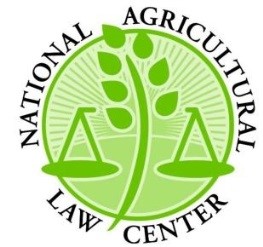A comprehensive summary of today’s judicial, legislative, and regulatory developments in agriculture and food. Email important additions HERE.
ANNOUNCEMENT: Join us next Friday, June 9, in Memphis, Tennessee, for the 4th Annual Mid-South Agricultural and Environmental Law Conference. Details here.
JUDICIAL: Includes environmental law, animal cruelty, aquaculture, and landowner liability issues.
In OUACHITA WATCH LEAGUE; Newton County Wildlife Association; Shawn Porter; G. Thomas McKinney; David Reagan; Susan Gateley; Robert B. Leflar; Sarah May Leflar; Kimberly Ison; John Ison; Billy Lindsey; Carol Lindsey; James Mitchell; Ruth Mitchell; John Lawrence Poff, Plaintiffs, Ozark Society, Plaintiff-Appellant v. UNITED STATES FOREST SERVICE; Judith L. Henry, Forest Supervisor, Ozark-St. Francis National Forests; Department of Agriculture; Department of Interior, Bureau of Land Management; Department of Defense, United States Army Corps of Engineers, Little Rock District; United States Department of the Army; Bureau of Land Management; Dr. John Lyon, in his official capacity of Eastern States Director, Bureau of Land Management; Bruce Dawson, in his official capacity as Eastern States Field Manager, Bureau of Land Management, Defendants-Appellees, No. 16-1952, 2017 WL 2324706 (8th Cir. May 30, 2017), an environmental group sued challenging management of natural gas resources in a national forest and lake by the Forest Service (FS). Defendant argued plaintiff lacked standing to sue. In considering plaintiff’s grievance, court observed, “When seeking to establish Article III standing to bring claim, having a specific and concrete plan that is injured by government action distinguishes a particular harm to an interest from mere generalized harm.” Appellate court held plaintiff did not establish Article III standing to challenge defendants’ management of resources.
In ANIMAL LEGAL DEFENSE FUND, et al., Plaintiffs, v. UNITED STATES DEPARTMENT OF AGRICULTURE, et al., Defendants, No. 17-cv-00949-WHO, 2017 WL 2352009 (N.D. Cal. May 31, 2017), USDA blocked public access to their databases to conduct a review of documents posted online to ensure that they do not contain information “shielded from public disclosure.” Plaintiffs claimed that by blocking access to the APHIS databases, the USDA breached its obligations under the Freedom of Information Act’s (FOIA) “reading-room provision,” and sought a mandatory preliminary injunction compelling USDA “to restore public access to all the documents available through two databases on the website.” Court reasoned plaintiffs would not likely “succeed on their FOIA claim because there is no public remedy for violations of the reading room provision—courts may order production of documents to specific plaintiffs but cannot mandate publication to the public as a whole.” Motion for preliminary injunction denied.
SAVE OUR CABINETS, Earthworks and Defenders of Wildlife, Plaintiffs, v. UNITED STATES FISH AND WILDLIFE SERVICE, Christopher S. Savage, Kootenai National Forest Supervisor, and United States Forest Service, Defendants, and Montanore Minerals Corporation, Defendant–Intervenor, CV 15–69–M–DWM, 2017 WL 2345653 (D. Mont. May 30, 2017) involved a mining project in Montana. Plaintiffs argued defendants violated the Endangered Species Act (ESA) when they concluded a mining project would “not jeopardize bull trout or grizzly bears or destroy or adversely modify bull trout critical habitat.” Court noted that, “The central inquiry in every consultation is whether the agency action is ‘likely to jeopardize the continued existence’ of a listed species.” Court found the mining project would have significant impact on “the local populations at issue” and concluded that “the agency’s no jeopardy conclusion for bull trout was arbitrary and capricious.” Case remanded to the agencies for further review.
In CITY OF TEXAS CITY, Appellant v. JOYCE WOODKINS, Appellee, NO. 14-15-01053-CV, 2017 WL 2367515 (Tex. App. May 31, 2017), plaintiff sued after suffering injuries from bicycling over an uncovered trench at a city-owned sports complex. On appeal, City claimed it was immune from suit because “it did not have actual knowledge of the alleged defect.” Issue under the applicable recreational use statute was whether the City was “grossly negligent.” Court considered Texas Tort Claims Act and found the City “failed to conclusively negate actual knowledge of the dangerous condition,” and affirmed lower court decision for plaintiff.
REGULATORY: Includes EPA, FWS, NOAA, and OAO rules and notices.
ENVIRONMENTAL PROTECTION AGENCY: Rule EPA is delaying the effective date for the final rule addressing revisions to the Certification of Pesticide Applicators rule. Details here.
FISH AND WILDLIFE SERVICE:
Notice FWS announce the availability of a draft environmental impact statement and draft environmental impact report (EIS/EIR), which evaluates the impacts of, and alternatives to, the proposed South Sacramento Habitat Conservation Plan. Details here.
Notice FWS comment on applications to conduct certain activities with endangered species. Info here.
NATIONAL OCEANIC AND ATMOSPHERIC ADMINISTRATION:
Notice the SEDAR 50 assessment of the Atlantic stock of Blueline Tilefish will consist of a series of workshops and webinars: Stock ID Work Group Meeting; Data Workshop; Assessment Workshop and Webinars; and a Review Workshop. Info here.
Notice the Pacific Fishery Management Council’s Ad Hoc Ecosystem Workgroup will hold a webinar, which is open to the public. Details here.
OFFICE OF ADVOCACY AND OUTREACH: Notice OAO will request approval from the Office of Management and Budget to conduct data collection for the USDA Hispanic-Serving Institutions Scholars Program. Info here.
